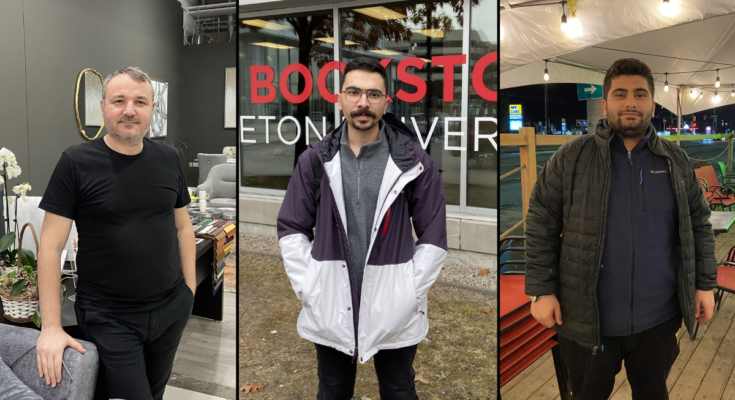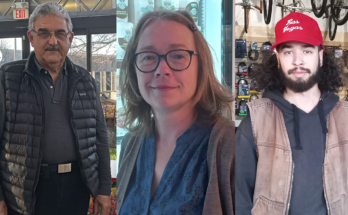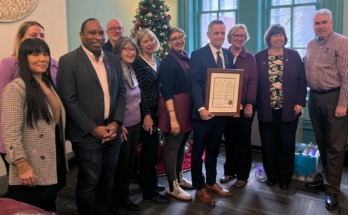Two devastating earthquakes struck Turkey earlier this year, resulting in the deaths of at least 50,000 people in what the Turkish Radio and Television Corporation called the “disaster of the century.”
Mazlum Gunes survived the powerful 7.7 earthquake that struck in the morning hours of Feb. 6, but his house in Kahramanmaraş province was destroyed.
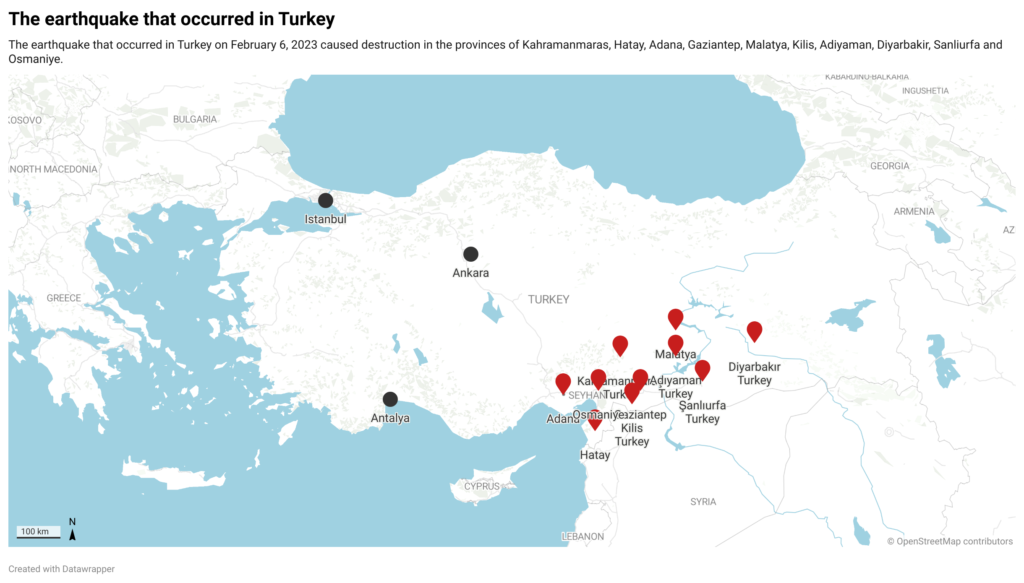
In the aftermath, the Canadian government fast-tracked temporary and permanent residence applications for those affected by the disaster. They also made it easier for Turkish citizens already in Canada to extend their stay.
Gunes applied to come to Canada after hearing the news and arrived in September.
“I left my family, my friends, my job,” the 29-year-old said. “I left everything behind, but here I am trying to provide a better future for my family.”
At first, Gunes worked in construction in Toronto, where he said his employer forced him to work for below the minimum hourly wage. “People who immigrate for forced reasons do not have much time for research. You want to start working and earn money as soon as possible,” he said. “But you should be careful of people who try to cheat you and rob you of your labour.”
Meanwhile, immigrants whose families remain in Turkey’s earthquake zone are worried.
Tarik Dirikolu, a civil engineering graduate student at Carleton University, arrived in Ottawa a month before the earthquake. His family lives in Malatya province, which was hit hardest by the earthquake.
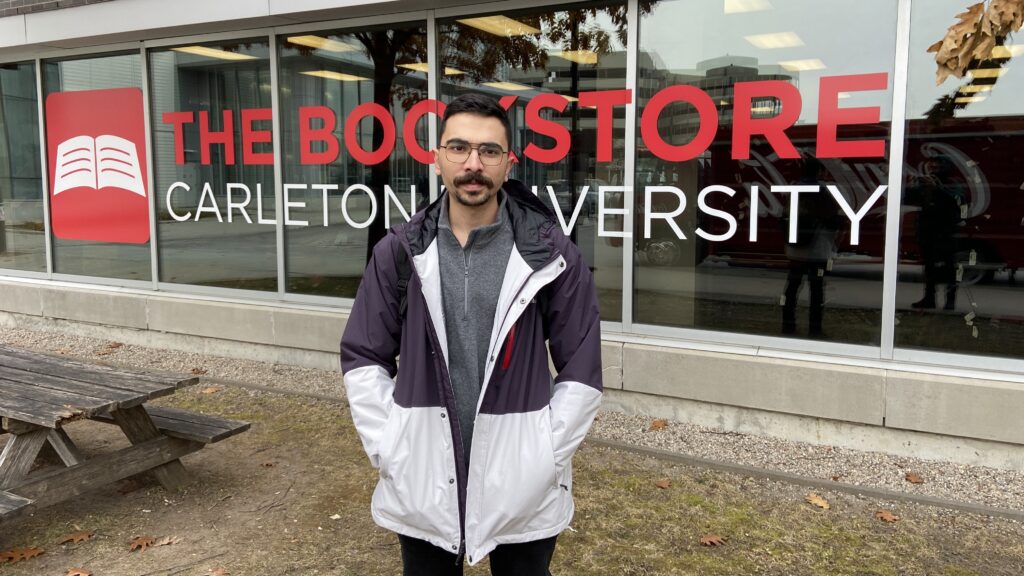
“When the earthquake happened, I didn’t hear from my family for a few days because there were problems with the communication lines,” the 26-year-old said. “My family and relatives are fine, but many of my friends died in the earthquake and I am trying to cope with the negative effects of this pain.”
Dirikolu said his goal is to return to Turkey after graduation to study how buildings can be designed to better withstand earthquakes. He has already received a job offer from the Turkish government.
Newcomers like Gunes and Dirikolu who came to Canada as a result of the earthquakes now find themselves preparing for harsh winter conditions and other challenges. However, members of the vibrant Turkish diaspora community already established in Canada – which the federal government estimates at about 65,000 people – are now stepping up to offer newcomers helpful suggestions to settle comfortably.
Advantages, challenges of immigration
Umut Safir, a business student at Algonquin College in Ottawa, moved to Vancouver after graduating from high school in Turkey. When he first arrived, there were numerous public-health measures, making it difficult to meet people. He overcame this issue by meeting Turkish immigrants on social media.
“I had many friends who came Ottawa by taking advantage of the visa facility provided to earthquake victims, but many of them returned,” Safir said.
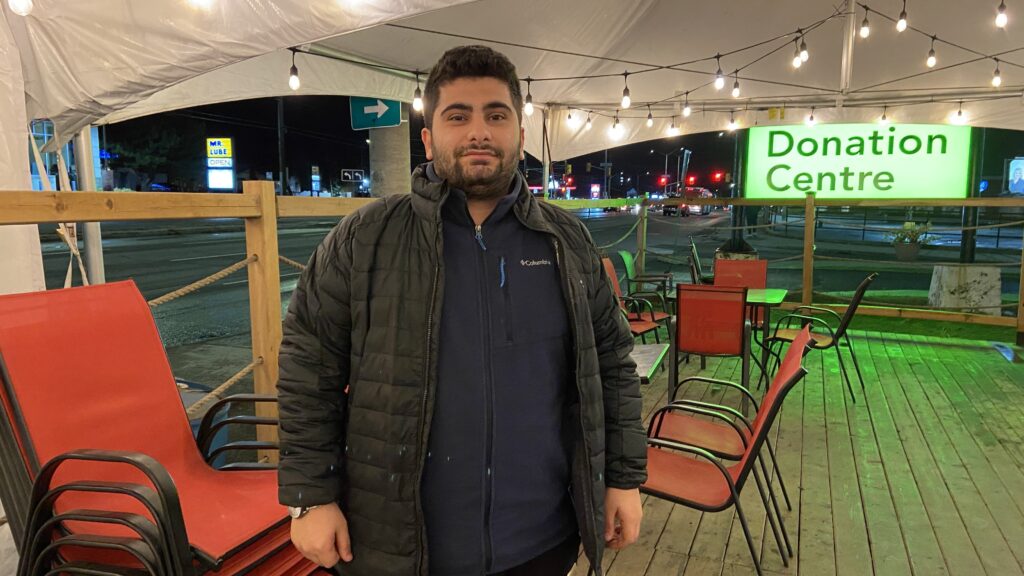
He said he would like to gain work experience in Canada and then continue his career in Turkey. “The health system is not adequate, taxes are too high. Your career and education in Turkey are not valid here. You have to start everything from scratch,” he added.
Safir, 23, explained bills, mortgages and car loans put too much pressure on workers, a problem reason enough to return to his country.
“Blue-collar people with technical skills adapt more easily. White-collar workers, on the other hand, have a harder time adapting.”
Omer Yuzgulec
Dirikolu expressed the advantages and challenges of immigration. He said living in a multicultural environment and meeting new people raised his awareness. He noted the cold weather is challenging, so newcomers must maintain their mental health during the long winter.
“Newcomers don’t want to go out too much because of the harsh winter conditions. But spending time at home all the time prevents newcomers from socializing and puts them in a psychologically difficult situation,” he said.
“Ottawa’s winter makes immigrants who arrive here alone feel even more alone.”
Dirikolu said immigrants should plan ahead and prepare for the worst.
“Everyone who comes to Canada thinks they are going to pick up money from the ground. No one should immigrate to another country with these illusions and without a plan,” he explained.
Newcomers advised to mentally prepare for challenges
Omer Yuzgulec was the director of a news agency in Turkey, but faced accreditation issues in Canada. After five years in Ottawa, the 43-year-old is now a Canadian citizen and owns a furniture store in Billings Bridge Shopping Centre. He said Turkish immigrants who have bought the furniture he imported from Turkey felt like they were at home.
“The biggest issue of being an immigrant is missing the land where you were born and raised,” he said.

Yuzgulec said the pandemic transformed many habits and it is now more difficult to find a job and survive. “Yesterday was easier than today. Tomorrow will be harder than today.”
He added immigrants should prepare themselves mentally for immigration and be aware of the difficulties. “Success for newcomers will come over time. Countries such as Australia and Canada are highly preferred destinations by immigrants,” he said. “Turkey also has high living standards. The biggest difficulty I see for newcomers is that they cannot achieve these living standards here.”
For those who arrived after the earthquake, he suggested they should make their career plans very carefully. “Avoid making sudden decisions. Coping with the negative effects of the earthquake and trying to get used to a new country may cause them to make wrong decisions,” he said.
“Immigration is a state of being on the road. After settling down in one place, your soul wants to explore new places.”
Omer Yuzgulec
Yuzgulec said it is challenging for people to come to Canada and start all over again. Since most immigrants cannot transfer their experience, they must gain Canadian experience to move ahead.
“Blue-collar people with technical skills adapt more easily. White-collar workers, on the other hand, have a harder time adapting,” he said.
Yuzgulec and his wife are unsure if they will spend the rest of their lives in Canada but plan to stay in Ottawa for a while, he said.
“Immigration is a state of being on the road. After settling down in one place, your soul wants to explore new places.”
Advice for Ottawa’s harsh winter
In terms of preparing for the upcoming winter, Safir said winter coats and boots are very expensive in Turkey due to inflation and advised people coming from Turkey to buy their winter gear in Canada. “There is a lot of variety and prices are cheap in Canada. But inflation is getting annoying here too,” he said.
Yuzgulec said Turkish immigrants should buy their winter jackets and boots in Canada. “Many of my friends who purchased winter products in Turkey found that they were inadequate when they came here. Winter in Canada can affect you mentally more than it affects daily life,” he said.
“Even if the weather is minus 20 degrees, seeing the blue sky will make you feel better.”

